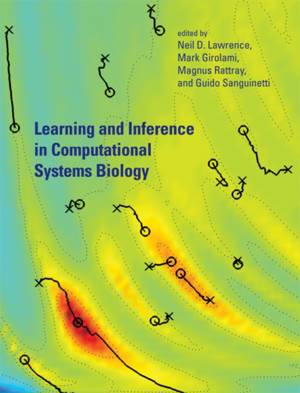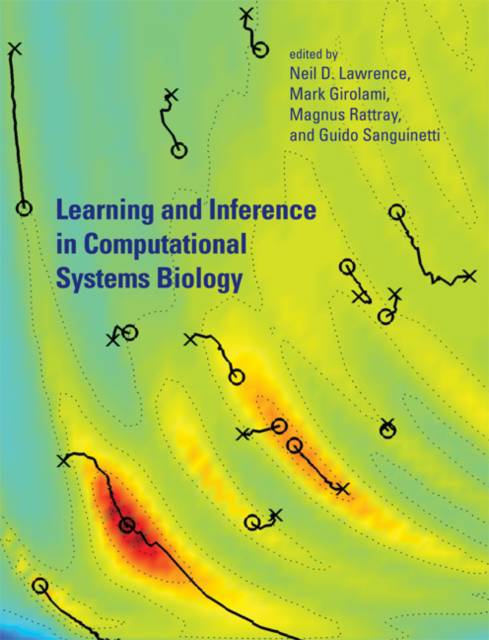
- Retrait gratuit dans votre magasin Club
- 7.000.000 titres dans notre catalogue
- Payer en toute sécurité
- Toujours un magasin près de chez vous
- Retrait gratuit dans votre magasin Club
- 7.000.000 titres dans notre catalogue
- Payer en toute sécurité
- Toujours un magasin près de chez vous
Learning and Inference in Computational Systems Biology
Description
Tools and techniques for biological inference problems at scales ranging from genome-wide to pathway-specific.
Computational systems biology unifies the mechanistic approach of systems biology with the data-driven approach of computational biology. Computational systems biology aims to develop algorithms that uncover the structure and parameterization of the underlying mechanistic model--in other words, to answer specific questions about the underlying mechanisms of a biological system--in a process that can be thought of as learning or inference. This volume offers state-of-the-art perspectives from computational biology, statistics, modeling, and machine learning on new methodologies for learning and inference in biological networks.The chapters offer practical approaches to biological inference problems ranging from genome-wide inference of genetic regulation to pathway-specific studies. Both deterministic models (based on ordinary differential equations) and stochastic models (which anticipate the increasing availability of data from small populations of cells) are considered. Several chapters emphasize Bayesian inference, so the editors have included an introduction to the philosophy of the Bayesian approach and an overview of current work on Bayesian inference. Taken together, the methods discussed by the experts in Learning and Inference in Computational Systems Biology provide a foundation upon which the next decade of research in systems biology can be built. Florence d'Alch e-Buc, John Angus, Matthew J. Beal, Nicholas Brunel, Ben Calderhead, Pei Gao, Mark Girolami, Andrew Golightly, Dirk Husmeier, Johannes Jaeger, Neil D. Lawrence, Juan Li, Kuang Lin, Pedro Mendes, Nicholas A. M. Monk, Eric Mjolsness, Manfred Opper, Claudia Rangel, Magnus Rattray, Andreas Ruttor, Guido Sanguinetti, Michalis Titsias, Vladislav Vyshemirsky, David L. Wild, Darren Wilkinson, Guy Yosiphon
Spécifications
Parties prenantes
- Editeur:
Contenu
- Nombre de pages :
- 362
- Langue:
- Anglais
- Collection :
Caractéristiques
- EAN:
- 9780262013864
- Date de parution :
- 01-02-10
- Format:
- Livre relié
- Format numérique:
- Ongenaaid / garenloos gebonden
- Dimensions :
- 178 mm x 229 mm
- Poids :
- 748 g






